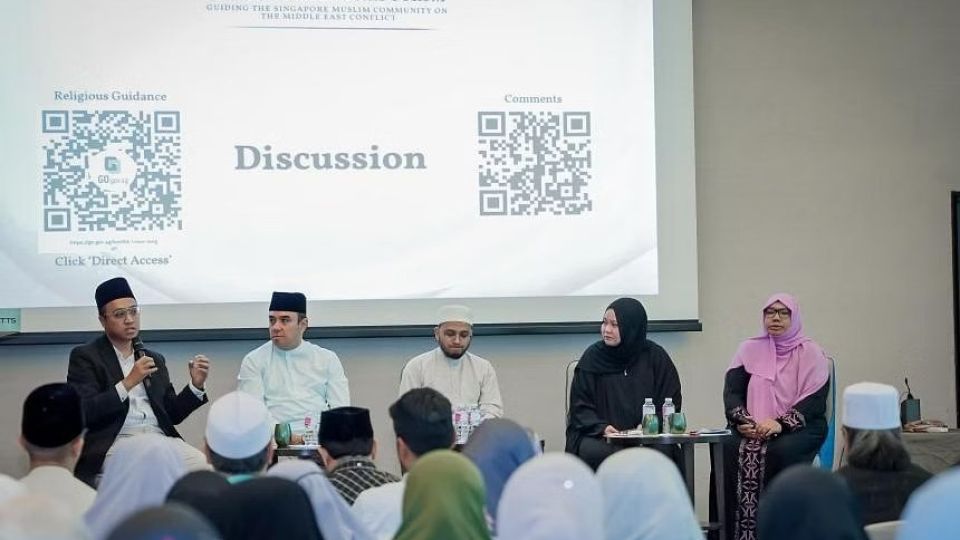November 23, 2023
SINGAPORE – The Islamic Religious Council of Singapore (Muis) and its partner religious organisations have developed a guidebook with advice for the local Muslim community on how to understand and approach the Middle East conflict.
Together with the Singapore Islamic Scholars & Religious Teachers Association, Religious Rehabilitation Group and Asatizah Youth Network, Muis compiled the 28-page advisory after the Religious Leadership Forum 2023 that was held on Nov 2.
The forum was convened by local Muslim leadership to discuss how best to provide guidance for the different segments of the Singapore Muslim community on the Middle East conflict, Muis said in a statement on Nov 22.
The guidebook, which is available only in Malay for now, contains religious advice for processing the conflict that rests on Islamic values. An English version is in the works.
The advice emphasises Islam’s rejection of all forms of oppression, no matter the perpetrator, said Muis, adding that Islam prioritises the pursuit of world peace.
At the same time, Islam acknowledges human emotions like sorrow and grief, and encourages Muslims to express these feelings in appropriate ways.
In responding to global crises like the one unfolding in Gaza, the reaction of the Muslim community should be guided by religious principles and the “immutable values” of Islam, added Muis.
It cautioned that the war in the Middle East had led to the proliferation of apocalyptic religious texts and hadiths on social media.
Muslims should refer to the interpretations of “authoritative scholars” to understand the context of these texts, Muis said, so as to avoid confusion and panic that would prevent them from making contributions to the well-being and prosperity of their community.
The Singapore Muslim community is in a unique position and Muslims here should continue to preserve the atmosphere of peace, protecting it from any threat of division or strife caused by geopolitical conflicts, Muis said.
The advice also recognises and supports the contributions of the youth, calling on Muslims to avoid dismissing young people as naive or uninformed, even though they may seem idealistic about making positive change in the world.
Muis underlined the importance of providing a “good support network” to the young, whether of family, friends, teachers or asatizah (religious teachers). The support network should give them someone to rely on and the safety to share their feelings and concerns with others, Muis added.
Those supporting Muslim youth can help them renew their intentions, put their thoughts into perspective and allow young people to take a more balanced view on issues close to the community’s hearts.
The guidebook also offers tips on how to recognise signs of burnout in those engaged in advocacy work.
“It is our hope that this guidebook will be of benefit to the community in navigating the myriad and complex challenges that we face today,” said Muis.
The advice will be shared with the community at Muis’ weekly Friday sermon and disseminated on social media and other online platforms.
The full text of the advice in Malay can be viewed here.

